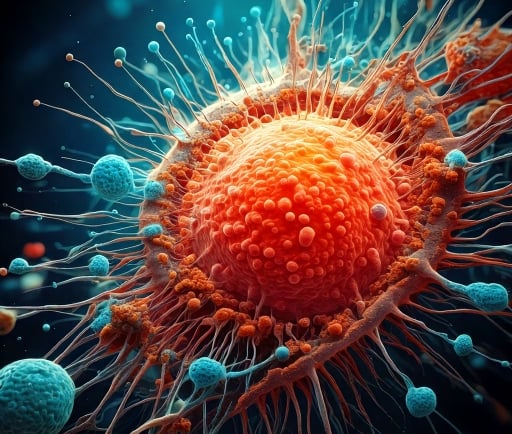Abnormal Cell Division and Its Role in Cancer Development


What is Abnormal Cell Division?
Abnormal cell division refers to the process where cells replicate irregularly, leading to the formation of faulty cells with unusual structures or functions. This condition can compromise the normal regulatory mechanisms of cell growth and replication, thus contributing to malignancies, including cancer. Understanding this process is crucial in deciphering how various cancers develop and progress.
The Mechanism Behind Abnormal Cell Division
The process of normal cell division is tightly regulated. Typically, cells divide in an orderly manner, ensuring that each daughter cell receives the correct number of chromosomes. However, abnormalities can occur due to genetic mutations, environmental factors, or external stressors. These abnormalities often lead to changes in chromosome structure and number, culminating in what is known as aneuploidy. Aneuploidy is frequently observed in cancer cells and is characterized by an abnormal number of chromosomes, which subsequently disrupts normal cellular functions.
Connection Between Abnormal Cell Division and Cancer
The correlation between abnormal cell division and cancer is profound. Cancer cells exhibit uncontrolled growth and division, largely due to the presence of irregularities in their genetic material. As abnormal cell division continues, these cells acquire additional mutations, allowing them to proliferate without the usual checks and balances inherent in normal cells. This unchecked proliferation is one of the hallmarks of cancer, leading to tumor formation and the potential for metastasis.
Thus, it becomes essential for researchers and medical professionals to examine the underlying causes of abnormal cell division, as this could pave the way for innovative treatments and preventive measures. By targeting the mechanisms that lead to cell division irregularities, it may be possible to halt or reverse the progression of cancer, offering hope for effective therapies in the future.
